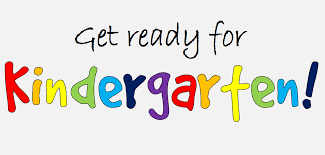As we are quickly coming to the end of another school year, although a little scary, a new one will be here before we know it, and this might be your child’s very first as they head into Kindy! So many emotions, it is exciting, but a little daunting and as this gets closer, and you start to get prepared for this big transition your child may start to go through a lot of feelings, although they might not always show it, or communicate it with you! Below are a few areas with some tips, and things to think about in relation to starting Kindy. We hope they are helpful, and allow you to navigate this new chapter of your child’s life with lots of positivity and success!
-
Getting familiar with the new environment:
-
If possible see if you can visit their new school prior to the first day to see the rooms, playgrounds, and be able to just explore before they start
-
Meeting (if possible), or getting some pictures of their teachers and educators to help them get familiar with these new faces
-
Over the holidays driving/catching transport to the new school to help them practice and be familiar with how you will get there and what this might feel like
-
Communication with new teachers and staff:
-
If you are lucky enough to know your child’s teacher before school starts talk, and communicate with them about any strategies or recommendations that might help when working with your child
-
Creating an ‘About Me’ information sheet for your child with their likes, dislikes, what might help them, triggers, and any other useful information that could be easily accessed and read by anyone working with them – your therapist can also help you make one of these!
-
If possible try and pre-plan a meeting within the first 2-4 weeks of your child starting the new school – even if you think it might be a really quick and there might be not too much to chat through it is great to have this just in case, and sometimes teachers cannot always chat when you pick your child up
-
Possibly think about setting up a communication book with the teachers, so you are both able to write and let each other know how their day was, but parents can also write if they have not had a good sleep/tricky morning etc. which is always good for educators to know for the day ahead
-
Practice independence skills needed for Kindy – these are the most important things for your child to be able to do by themselves, don’t place too much focus or worry on them being able to write and do letters/numbers, as this is what school will teach them, it is vital for them to be able to do the basics below that will make the little things that are part of the school day easy for them:
-
Being able to dress/undress for toileting, or changing uniforms during the day
-
Opening containers and packets of food that are in their lunchbox
-
Being able to navigate locks on toilet doors (take them to public toilets to practice this)
-
Manipulating zips on their bags and pencil cases
-
Being comfortable and willing to help pack away, manage their own belongings and transition between a variety of activities/lunch/recess breaks throughout the day
-
Development of social-emotional skills:
-
Having these skills are essential for success at school, both in learning and from a social perspective
-
Help your child understand and be able to label their feelings
-
Try and assist your child in learning how they can regulate their emotions – this will involve a lot of modelling from the parents to help teach them that it is okay to have a range of feelings, but then how important it is to how we respond, and react when we experience them
-
Develop some strategies and ways to manage tricky situations that might lead to some bigger feelings i.e. asking for help from an adult, using fidget toys, deep breaths/mindfulness, removing self to a quiet and calm space, colouring/drawing…
-
Help your child understand that all actions have consequences and outcomes – both good and bad
-
Try and help your child be able to relate to others
